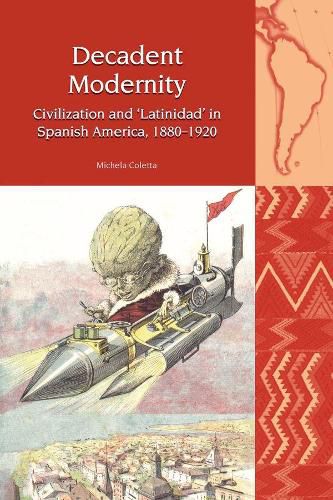Readings Newsletter
Become a Readings Member to make your shopping experience even easier.
Sign in or sign up for free!
You’re not far away from qualifying for FREE standard shipping within Australia
You’ve qualified for FREE standard shipping within Australia
The cart is loading…






How did Latin Americans represent their own countries as modern? By treating modernity as a ubiquitous category in which ideas of progress and decadence are far from being mutually exclusive, this book explores how different groups of intellectuals, between the late nineteenth and the early twentieth century, drew from European sociological and medical theories to produce a series of cultural representations based on notions of degeneration. Through a comparative analysis of three country case studies
Argentina, Uruguay and Chile
the book investigates four themes that were central to definitions of Latin American modernity at the turn of the century: race and the nation, the search for the autochthonous, education, and aesthetic values. Using a transnational approach, it shows how civilizational constructs were adopted and adapted in a post-colonial context where cultural modernism foreshadowed economic modernization. In doing this, this work sheds new light on the complex discursive negotiations through which the idea of ‘Latin America’ became gradually established in the region.
$9.00 standard shipping within Australia
FREE standard shipping within Australia for orders over $100.00
Express & International shipping calculated at checkout
How did Latin Americans represent their own countries as modern? By treating modernity as a ubiquitous category in which ideas of progress and decadence are far from being mutually exclusive, this book explores how different groups of intellectuals, between the late nineteenth and the early twentieth century, drew from European sociological and medical theories to produce a series of cultural representations based on notions of degeneration. Through a comparative analysis of three country case studies
Argentina, Uruguay and Chile
the book investigates four themes that were central to definitions of Latin American modernity at the turn of the century: race and the nation, the search for the autochthonous, education, and aesthetic values. Using a transnational approach, it shows how civilizational constructs were adopted and adapted in a post-colonial context where cultural modernism foreshadowed economic modernization. In doing this, this work sheds new light on the complex discursive negotiations through which the idea of ‘Latin America’ became gradually established in the region.